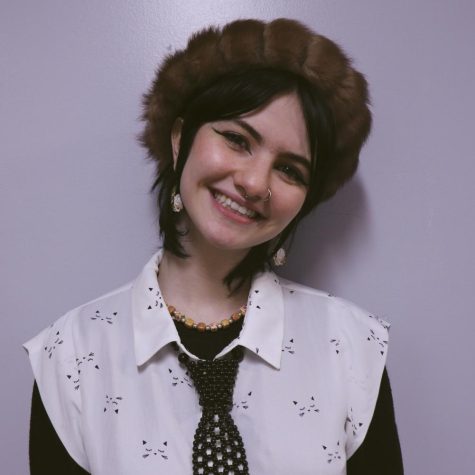We Are Lady Parts provides the representation Muslim women deserve
February 7, 2023
Muslim and MENA (middle eastern and north African) women have long been misrepresented in mainstream media. As a child, the only MENA representation I received was princess Jasmine from Disney’s “Aladdin”.
Unfortunately, this movie was created through the lens of orientalism and portrayed my people as barbaric and the women as exotic. As I got older, I was starved for better representation, but instead, I got the same overplayed harmful trope of Muslim women who takes off her Hijab for a white man. However, I finally found the representation I have been yearning for in Peacocks’ “We Are Lady Parts.”
Enter Amina Hussain. 26. Capricorn. Finishing a PhD in microbiology. She is quirky, a Don Mclean fan and is incredibly thirsty for a nice Muslim boy. Above all, she is crazy talented at playing the guitar, but she vows to never show her talents on stage after an elementary performance resulted in vomiting and diarrhea.
When a group of Punk Muslims women in a band invite her to join “Lady Parts,” she declines. However, she soon agrees when the drummer, Ayesha, proposes she would get Amina a date with her hot brother.
Although nervous, since Amina’s best friend is constantly judging her and lecturing her to “keep it halal,” Amina finds a new sense of confidence in the riot girl feminist scene.
We are lady parts is groundbreaking as it tells a story that is powerful, realistic and absolutely hilarious. They make music that is not accepted by the traditional Muslim demographic.
This is why it is so accurate because, as Muslim women, we are expected to behave and look a certain way. Lady Parts proves Muslim women can be punk, horny, rebellious and themselves all while still being devoted to their faith. As the lead singer, Saira, states, “We play together and pray together.”
“We are Lady Parts” fights islamophobia while also combatting the toxic parts in Islamic culture which oppress Muslim women.
Each character is unique, entertaining and flawed in their own way. Their voyage into the punk scene is accompanied by their relationship with their faith.
What I admire most about this show is it is not showing Islam through the Western perspective, but through the reality of what many Muslim women experience.
Many Muslims might take issue with the show as there are many debates accompanying the validity of an all-women punk band. However, it is important for both the West and Muslims to see Muslim women as they are and not what you think they should be. I found extreme comfort in seeing people like me exploring each facet of their identities.
Each episode reveals a new layer of genuine Muslim women being in charge of their own story and refusing to be molded into a trope created by the patriarchy. There is something so beautiful about seeing women like me navigate relationships with their families and partners. The series treats its audience with peeks of Islamic culture that are both raw and wholesome.
As Saira says, “Our music is about representation. It’s about being heard.” As someone who falls into the MENA Muslim identity, I am grateful to finally be seen and heard.











